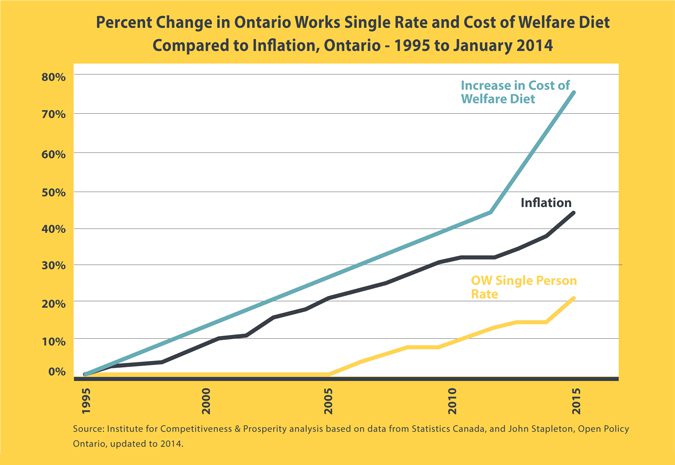According to a report released today by the Bank of Montreal (BMO), Canada’s average Consumer Price Index (CPI) rate soared to 2.4 per cent this year: a 1.5 per cent increase compared to last year’s 0.9 per cent. The inflation rate in Toronto alone exceeded the national average to reach three per cent.
Prices have risen 2.4 per cent in the past year. — Douglas Porter, chief economist at BMO
“One factor that has boosted Canada’s inflation rate is the weakening dollar,” Douglas Porter, chief economist at BMO, said. “A lower loonie pushes up the cost of imported goods, like clothing and some food. As well, meat, electricity and telecom charges have all risen notably in the past year.”
While one year’s high inflation rate won’t drastically change many Torontonians’ lives, it may indicate a harder future for the less fortunate.
For the sixth year in a row, Toronto has seen more than one million citizens visit food banks as living expenses grow continuously. Last September, Daily Bread Food Bank released the 2014 Who’s Hungry report, which analyzed the impact an inflation could exert on food bank clients.
“The biggest financial strain is the cost of rent,” Richard Matern, author of the Daily Bread report said. “In terms of food cost, we see people with fixed incomes and these incomes have not kept up with the rate of inflation.”
For a food bank user who has too spent over 70 per cent of their average $750 monthly income, even the smallest inflation could worsen the already tense situation.
“They’ve already spent such a high percentage of their limited income on rent and food, Matern said. “Any inflation on those two areas would definitely affect them.”
“We have one person who is on the fixed provincial disability support mentioning that a few years ago, they might have been able to make a few trips to grocery store in a month, whereas now they can’t do it any more and they have to get almost all their food from food banks,” he added.
Porter said he expects inflation rates to cool somewhat over the next year, considering the current rate is still contained at 2.4 per cent, and that gasoline prices are falling further.
Last time Canada’s inflation rate went beyond 2 percent was in 2011.


